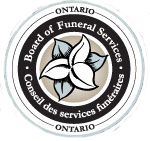Executors
An executor is the personal representative of your estate. They are the person in charge of taking control of your assets, paying off any debts, and distributing assets to your beneficiaries per the terms and conditions of your will. You can choose anyone to be the executor of your will, but it is a good idea to choose someone who is both competent and trustworthy. The person you choose to be executor should be outlined in your will. Someone you appoint to be the executor of your will has the right to refuse, so you should have a backup executor in place just in case.
There is often a misconception concerning Power of Attorney and Executors. A Power of Attorney is a legal document that gives someone else the right to act on your behalf, while you are alive. Power of Attorney ceases at the time of death.
UPDATE: Information on the Estate Administration Tax
Anyone who applies for a Certificate of Appointment of Estate Trustee on or after January 1, 2015 is required to file an Estate Information Return with the Ministry of Finance. This Estate Information Return must be received by the Ministry of Finance within 90 calendar days after the Certificate of Appointment of Estate Trustee has been issued. Mail the completed return to the Ministry of Finance at the address indicated on the return. Do not file the Estate Information Return with the court.
Visit ontario.ca/estateadmintax for information on the Estate Administration Tax, Questions and Answers or to download the Ministry of Finance Estate Information Return and its accompanying guide.



